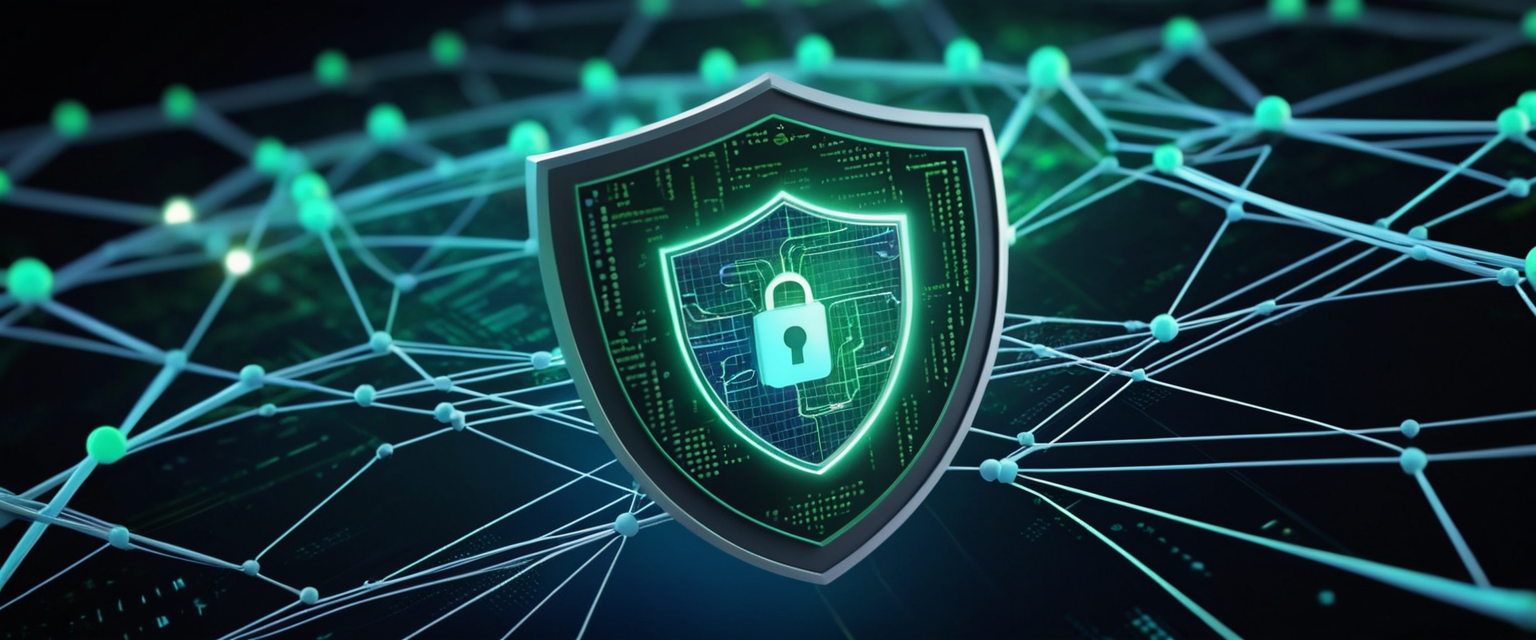
Virtual Private Networks present both opportunities and challenges for Roblox players seeking to enhance their gaming experience. This analysis examines whether players can legitimately use VPNs while playing Roblox, what policies govern their use, the technical implications of doing so, the benefits that motivate their adoption, and the significant risks that players should understand before connecting. Current evidence shows that while Roblox does not categorically prohibit VPN usage for casual gameplay, the platform has implemented increasingly sophisticated detection and restriction mechanisms, and misuse of VPNs—particularly to evade bans or access features without authorization—can result in account suspension or termination. This comprehensive report explores the multifaceted relationship between VPNs and Roblox gaming through technical, legal, security, and practical lenses.
Understanding Virtual Private Networks and Their Core Functionality
A Virtual Private Network operates by creating an encrypted tunnel between a user’s device and a remote server operated by the VPN provider, fundamentally altering how that user’s internet traffic traverses the global network infrastructure. When a player connects to a VPN before launching Roblox, their data packets are encrypted using protocols that render the information unreadable to unauthorized parties, and their actual IP address is masked behind the VPN provider’s server address instead. This encryption mechanism works by routing internet traffic through the VPN provider’s server, which then communicates with Roblox’s servers on behalf of the user, effectively creating a layer of anonymity between the player and the gaming platform. The practical effect of this technical architecture is that Roblox’s servers perceive the connection as originating from the VPN provider’s data center rather than the user’s actual location, which can be located anywhere in the world depending on which server the player selects.
The encryption standards employed by reputable VPN services typically meet or exceed military-grade specifications, with many using Advanced Encryption Standard 256-bit (AES-256) encryption that is mathematically considered essentially unbreakable using current computational technology. This encryption is distinct from mere anonymization in that it not only hides the user’s identity but also protects the content of their communications from being intercepted and read by third parties including internet service providers, network administrators, or malicious actors attempting to access sensitive information. Beyond encryption, VPNs also provide additional features such as kill switches that automatically disconnect the user’s device if the VPN connection drops unexpectedly, ensuring that the user’s actual IP address is never exposed during vulnerable moments when connection might be temporarily interrupted.
Official Roblox Policy on VPN Usage: The Nuanced Legal Framework
Roblox’s official position on VPN usage represents a carefully balanced approach that neither explicitly bans VPNs nor endorses their unrestricted use, instead creating a framework where VPN usage itself is permitted but specific applications of that technology violate terms of service. According to Roblox’s Community Standards document, which was updated as recently as August 15, 2025, the platform does not prohibit VPNs outright but instead specifically prohibits using VPNs to “mask your location in order to gain unauthorized access to Roblox, including to a specific feature or account”. This regulatory distinction is significant because it means that a player can use a VPN to play Roblox in ways that do not involve circumventing security measures, bypassing bans, or accessing region-restricted features, but the same player cannot use that VPN to evade enforcement actions or gain unfair access to restricted content. The distinction exists because Roblox maintains different content policies for different regions and different age groups, and therefore the platform has legitimate reasons to enforce geographical restrictions and account-specific access controls.
When reviewing Roblox’s Terms of Service and examining multiple authoritative interpretations of these terms, cybersecurity and gaming platforms confirm that simply using a VPN to play Roblox on a regular basis, without using it to circumvent security systems or gain unauthorized access, falls within the acceptable use parameters. However, what this means in practical terms is ambiguous in borderline cases because players cannot always know with certainty whether their specific VPN usage would be considered legitimate. For example, a player living in a country where Roblox is blocked (such as Turkey or the United Arab Emirates) who uses a VPN to access the platform must check local laws to ensure they are not violating their country’s VPN regulations, even though Roblox itself permits the connection method. Similarly, a player who has received an IP ban due to violations by another user on their network faces a more complex situation: using a VPN to circumvent that IP ban could potentially be interpreted as using a VPN to gain unauthorized access to the platform, which would violate Roblox’s policies.
The regulatory approach taken by Roblox reflects the platform’s effort to balance player privacy and security concerns against its need to enforce community standards and prevent abuse. The company acknowledges that VPNs serve legitimate purposes for player safety and privacy, particularly for protection against distributed denial-of-service attacks and to prevent ISP monitoring of gaming activities. At the same time, Roblox must prevent bad actors from using VPNs to create multiple accounts evading previous bans, to access monetization features in different regions at different price points, or to hide their true identity while engaging in predatory behavior or exploiting other players.
Technical Feasibility of VPN Integration with Roblox Platform
The technical question of whether VPNs can successfully function with Roblox is more complex than a simple yes-or-no answer, as the compatibility depends on multiple factors including the specific VPN provider chosen, the VPN protocol being used, the user’s device and operating system, their geographical location, and specific network conditions. Many players successfully use VPNs while playing Roblox across all supported platforms including Windows PCs, macOS computers, iOS devices, Android smartphones, and gaming consoles when properly configured. Developers report that when a quality VPN is selected and properly connected before launching Roblox, games typically load and function normally, and players can engage in typical gaming activities including joining game servers, communicating with other players, and completing in-game objectives.
However, numerous players have reported encountering persistent connection errors when attempting to connect to Roblox games while using VPNs, with these errors appearing to be specific to certain VPN providers and certain server locations within those providers’ networks. A common symptom reported is that while the Roblox client launches normally, the game hangs indefinitely at the “Joining server” loading screen and eventually times out without successfully connecting to the game server, or alternatively generates error codes such as 429 (Too Many Requests) or ID-17 errors. These technical failures appear to stem from Roblox’s security infrastructure detecting certain VPN IP addresses and either throttling traffic from those addresses or blocking them entirely due to perceived suspicious activity. In particular, players using older, more commonly used VPN servers report more frequent connection failures than players using newer VPN providers or less congested server locations, suggesting that Roblox may be actively blocking or rate-limiting known public VPN server addresses.
Additionally, Roblox has implemented technical restrictions on specific VPN protocols, particularly restricting OpenVPN connections through port 1194, which is the standard port used by OpenVPN. This port restriction affects HttpService requests and represents Roblox’s deliberate choice to limit certain types of VPN connectivity, likely as a security measure to prevent certain classes of attacks or unauthorized access. Players who wish to use a VPN with Roblox should therefore prioritize VPN services that offer alternative protocols such as WireGuard, IKEv2, or NordLynx (NordVPN’s proprietary protocol based on WireGuard) rather than relying solely on OpenVPN. The platform also appears to detect VPN usage on public WiFi networks shared by many users, particularly in schools and offices, and may treat such connections with additional scrutiny that can result in enforcement bans affecting all accounts on that network.
Benefits and Motivations for VPN Usage in Roblox Gaming
Players and security professionals identify multiple compelling reasons to utilize VPN technology while engaging with Roblox, even acknowledging the technical complications and policy ambiguities involved. The most frequently cited benefit across authoritative sources concerns protection against Distributed Denial-of-Service attacks, wherein malicious actors exploit knowledge of a player’s IP address to flood that address with traffic designed to overwhelm the player’s connection and make gaming impossible. Because Roblox is a multiplayer platform where players communicate through both chat and gameplay with other users whose intentions cannot always be verified, the theoretical risk that a vindictive player could target another’s IP address is non-zero, particularly in competitive game modes where tensions run high. A VPN prevents such attacks by ensuring that even if another player somehow obtains an IP address, that address belongs to the VPN provider rather than the actual player, making targeting impossible.
Internet Service Provider throttling represents a second significant motivation for VPN adoption among Roblox players. Many ISPs employ “traffic shaping” or selective throttling techniques that deliberately slow down certain types of internet traffic during periods of network congestion, and gaming traffic is often among the targeted categories. Because a VPN encrypts traffic and obscures its destination, the ISP cannot readily identify that a user is playing Roblox and therefore cannot apply gaming-specific throttling policies to that user’s connection. This technical reality means that VPN-connected players may experience faster, more stable gaming connections than players on the same network who are not using VPNs, particularly during peak internet usage hours when ISPs are most aggressive about traffic management.
Privacy protection from ISP surveillance constitutes a third major benefit, as internet service providers maintain detailed logs of which websites and services their customers access. This browsing history can reveal sensitive information about user preferences and behaviors, and some ISPs sell aggregated anonymized data about customer internet usage patterns to advertisers, or sell specific user data to third parties despite privacy policy commitments. A VPN prevents ISPs from observing that a customer is using Roblox, thereby protecting that user’s privacy from corporate surveillance even while keeping them connected to the network. This privacy benefit becomes particularly important for users in countries with oppressive governments that monitor internet activity or for users who prefer to keep their gaming habits private from their network administrators.
The ability to access Roblox from geographically restricted locations represents another key benefit motivating VPN adoption, particularly for players in countries where the platform is completely blocked or restricted. Several countries including Turkey, the United Arab Emirates, Jordan, and others have implemented government-level blocks preventing citizens from accessing Roblox servers, and players in these regions face a genuine choice between abandoning the platform or using a VPN to circumvent those restrictions. While the legality of using VPNs in such circumstances varies by jurisdiction and players must verify their local laws, the technical capability certainly exists to bypass such restrictions when local laws permit VPN usage. Similarly, some schools and workplaces block Roblox and other gaming platforms on their networks, and players in such environments may wish to access Roblox during breaks or free periods using VPNs to circumvent institutional network restrictions.
Protect Your Digital Life with Activate Security
Get 14 powerful security tools in one comprehensive suite. VPN, antivirus, password manager, dark web monitoring, and more.
Get Protected NowConnection optimization through strategic server selection represents a more nuanced but sometimes significant benefit. By selecting a VPN server that is geographically closer to Roblox’s game servers than the player’s actual location, or by routing traffic through servers with less congestion, players can occasionally achieve lower latency (ping) and more stable connections compared to their baseline unencrypted connection. This benefit is not guaranteed and depends on specific network conditions, but quality VPN providers with extensive server networks sometimes enable this optimization. The effect is typically modest—perhaps reducing ping by a few milliseconds—but in competitive Roblox games where split-second response times matter, even small latency reductions can provide advantages.

Significant Risks and Drawbacks Associated with VPN Usage
Despite legitimate benefits, using a VPN with Roblox introduces substantial risks and drawbacks that players must carefully weigh before deciding to use this technology. The most severe risk involves account security complications that can result in permanent account loss, as documented by multiple players reporting that using a VPN triggered automatic security features that revoked verified email addresses from their accounts without warning. These players describe a concerning pattern wherein after using a VPN to log into their Roblox accounts, their previously verified email addresses disappeared from their account settings, leaving them unable to perform account recovery if they were ever locked out of their primary credentials. When these affected players contacted Roblox Support seeking to restore their verified emails, support representatives reportedly claimed they could not verify account ownership without the verified email, creating a logical impossibility wherein the only mechanism to prove ownership (the verified email) was the very thing that had been revoked. Players who had not enabled phone-based two-factor authentication reported that this situation rendered their accounts completely unrecoverable, as there was no fallback authentication method available.
The mechanism behind this email revocation problem appears to stem from Roblox’s security system interpreting VPN logins as suspicious activity potentially indicating account compromise, leading the system to automatically revoke email addresses to prevent further unauthorized access. Rather than implementing a verification process that allows users to confirm ownership of their account when connecting from a new location or device, Roblox’s automated system simply removes the email permanently. This represents a significant flaw in how Roblox handles account security, as the cure (removing the email) is arguably worse than the disease (potential account compromise), yet it remains an undocumented risk that VPN users face.
Technical connection failures represent another major drawback, as numerous players report complete inability to connect to Roblox games when using VPNs, receiving error codes that prevent gameplay even though their VPN connection itself is functioning normally. These failures appear inconsistent across different VPN providers and different server locations, suggesting that Roblox has implemented detection mechanisms specifically targeting public VPN addresses. Some players report that switching to a different VPN server location resolves the connection error, while others report needing to switch VPN providers entirely to restore functionality. This unpredictability means that even players using VPNs specifically recommended for Roblox cannot guarantee that their VPN will function properly on any given day or with any given game.
The risk of enforcement bans and account termination represents a particularly troubling concern, as Roblox has implemented automatic enforcement systems that ban all accounts on a shared IP address when any account on that IP violates platform rules. These “enforcement bans” are applied without human review and can catch innocent players in their net if someone else on their network engages in prohibited behavior. While the enforcement ban system was theoretically designed to prevent players from creating alternate accounts to evade punishment after their main accounts were banned, it has resulted in numerous documented cases where families sharing a single home WiFi network have had all their accounts simultaneously terminated because one family member violated Roblox’s rules. VPN users connecting to shared VPN servers face a similar risk: if other users of that same VPN server have violated Roblox’s rules, the VPN provider’s IP address may be blacklisted, affecting all other users connected to that server.
Speed and latency degradation represents an inherent technical tradeoff with VPN usage. The encryption and decryption processes required for VPN functionality consume processing resources, and routing traffic through an additional remote server adds network hops that increase round-trip time. Even quality VPN services typically reduce connection speeds by 10-15% compared to unencrypted connections, and higher-quality encryption can reduce speeds further. For players attempting to achieve the absolute minimum possible latency in competitive games, this speed reduction can be counterproductive and actually worsen their gaming performance relative to not using a VPN. High-frequency traders and players in esports-level competitive games may find that the security benefits of a VPN are outweighed by the performance penalties.
The unreliability and inconsistency of VPN performance with Roblox creates additional hassles for players, as a VPN that works perfectly for streaming video or general web browsing may function poorly or not at all when connected to Roblox. Players cannot always predict which VPN provider will work or fail for Roblox, as Roblox continually updates its detection systems and different VPN providers respond differently to these changes. This means that paying for a VPN subscription does not guarantee the ability to play Roblox reliably, and players may need to maintain subscriptions with multiple VPN providers or accept frequent service disruptions.
Common Connection Issues and Troubleshooting Approaches
When Roblox players encounter connection difficulties while using a VPN, several common error patterns emerge that can guide troubleshooting efforts, though no universally applicable solution exists. Error Code 429 (Too Many Requests) is frequently reported when using VPNs on Roblox web pages and the Roblox website features. This error typically indicates that Roblox’s servers are rate-limiting traffic from the user’s IP address due to excessive requests within a short time period, and since VPN users share IP addresses with many other VPN users, requests from that shared IP can quickly exceed Roblox’s rate limits. Players experiencing 429 errors may find that switching to a different VPN server location resolves the issue, as this changes their IP address and resets the request counter. Alternatively, waiting several minutes before retrying the connection sometimes allows the rate limit to expire.
The “Unable to Connect” error combined with indefinite hanging on the “Joining server” loading screen represents another common failure pattern where the Roblox client appears to launch normally but fails to establish a connection to the game server. This symptom often indicates that Roblox’s game servers are actively rejecting connections from the VPN server’s IP address, possibly because Roblox has flagged that address as potentially malicious based on prior user behavior. In these cases, players cannot resolve the issue by retrying; instead they must either switch to a different VPN provider or wait until they access Roblox through a standard (non-VPN) connection, if possible.
Technical recommendations for improving VPN compatibility with Roblox include switching from OpenVPN protocol to WireGuard, IKEv2, or other modern protocols, as Roblox explicitly restricts OpenVPN port 1194. Selecting a VPN server geographically closer to the user’s actual location often improves stability and performance, as shorter network distances result in lower latency and more reliable connections. Ensuring that both the VPN client software and Roblox itself are updated to current versions eliminates the possibility that version incompatibilities are causing connection issues. Clearing the browser cache and cookies before connecting to Roblox through a VPN sometimes resolves persistent connection failures, as old cached data may be causing conflicts.
Recommended VPN Providers and Their Specific Roblox Characteristics
Among the hundreds of VPN services available, only a subset have demonstrated reliable functionality with Roblox, and most independent testing evaluations recommend the same few providers repeatedly. NordVPN consistently ranks as the top-recommended VPN for Roblox gaming across multiple independent reviews and evaluations. NordVPN offers several features specifically advantageous for Roblox: its proprietary NordLynx protocol (based on WireGuard) maintains approximately 88% of baseline download speeds while providing strong encryption, the provider operates over 8,000 servers across 126 countries providing significant flexibility for server selection, and the Meshnet feature allows players to securely connect private Roblox servers with friends across different geographical locations without exposing their actual IP addresses to each other. NordVPN also implements app-specific kill switch functionality that disconnects only Roblox if the VPN connection drops, preventing data leaks while maintaining connectivity to other applications. Pricing for NordVPN begins around $3.09 per month for annual plans and includes a 30-day money-back guarantee.
Surfshark represents an excellent budget option for Roblox gaming, offering competitive speeds with approximately 84% speed retention, unlimited simultaneous device connections (allowing a single subscription to protect all devices in a household), access to over 3,200 servers in 100 countries, and support for modern VPN protocols including WireGuard. The platform includes CleanWeb technology that blocks ads, trackers, and malware, features no data limitations for extended gaming sessions, and maintains a strict no-logs policy. Surfshark’s pricing begins around $1.99 per month for extended subscriptions and includes a 30-day money-back guarantee. The main limitation of Surfshark compared to NordVPN is somewhat less comprehensive router support, though it still works effectively for standard desktop and mobile gaming.
ExpressVPN provides strong encryption and security features with approximately 87% speed retention, servers across 105 countries, and support for multiple protocols including IKEv2 and their proprietary Lightway protocol. The platform includes the MediaStreamer feature for console gaming, comprehensive DNS leak protection, split tunneling capabilities, and port forwarding options that can improve connection stability. ExpressVPN pricing begins around $4.99 per month for longer-term subscriptions and includes a 30-day money-back guarantee. ExpressVPN represents a premium option best suited for players prioritizing maximum security over budget considerations.
Proton VPN stands out as the rare genuinely free VPN offering unlimited data, no advertisements, and a strict no-logs policy, making it suitable for cost-conscious players or those wanting to evaluate VPN gaming before committing funds. The free version provides access to servers in only a few countries (US, Netherlands, Japan, Poland, Romania), limiting optimization options but still enabling basic gaming. The paid Proton VPN Plus plan provides 14,900 servers across 122 countries, achieves 86% speed retention, includes advanced features like Secure Core routing through multiple servers for enhanced privacy, and includes ad/malware blocking via NetShield. Pricing for Proton VPN Plus begins around $3.59 per month for longer-term plans.
Performance Implications and Latency Considerations for Gaming
The relationship between VPN usage and gaming performance in Roblox is more nuanced than simple speed degradation, as multiple factors interact to determine whether a VPN ultimately improves or worsens a player’s gaming experience. The fundamental physics of VPN operation guarantee some latency penalty, as data must travel from the player’s device to the VPN server, be decrypted, transmitted to Roblox servers, and follow the reverse path back. The magnitude of this latency penalty depends on the distance between the player’s actual location and the VPN server (longer distances mean more network hops and greater latency), the quality of the VPN provider’s infrastructure (high-quality providers peer directly with ISPs and route traffic efficiently, while low-quality providers route traffic inefficiently through congested networks), and the specific protocol used (WireGuard and IKEv2 protocols typically introduce less latency than OpenVPN).
In practical testing, high-quality VPN providers like NordVPN add approximately 15-30 milliseconds of latency to typical gaming connections, which most players cannot consciously perceive and which does not materially impact gameplay in typical Roblox experiences. A player with baseline ping of 23 milliseconds might experience 40-50 milliseconds of ping when connected to a well-optimized VPN server, which remains comfortably within the acceptable range for comfortable gaming (anything under 100ms is generally considered playable). However, in specific competitive Roblox games where milliseconds determine victory or defeat, or for players already experiencing high baseline latency, the additional VPN latency could theoretically matter.
The encryption and decryption operations required for VPN functionality also consume device processing resources and can result in 10-15% speed reduction for typical internet connections. For most Roblox games, which do not have extreme bandwidth requirements, this speed reduction is imperceptible and causes no gameplay impact. However, players attempting to play Roblox on devices with limited processing power (such as older smartphones or low-end computers) or on connections with limited bandwidth (such as mobile hotspots or rural connections) may notice degraded performance when using a VPN, potentially resulting in stuttering, lag, or difficulty maintaining consistent frame rates.
The counterintuitive possibility of improved gaming performance through VPN usage emerges when ISP throttling is actively degrading baseline connection quality. If a player’s ISP is intentionally throttling gaming traffic, connecting through a VPN that obscures the traffic type can eliminate that throttling and result in significantly faster, lower-latency connections than the player’s baseline. A player whose ISP reduces their gaming traffic to 5 Mbps through throttling might restore that connection to 25 Mbps by using a VPN, resulting in dramatically improved performance. Similarly, players routing through inefficiently congested networks might find that a VPN to a less-congested server location actually reduces latency and improves gameplay. These scenarios represent the rare cases where VPN usage is technically performance-enhancing rather than performance-degrading.

Account Security and Authorization Implications
Using a VPN with Roblox interacts with the platform’s security and authentication systems in ways that merit careful consideration. When a player accesses their account from an IP address significantly different from their typical access pattern—such as when using a VPN to an international server location—Roblox’s security systems may flag this as suspicious activity potentially indicating account compromise. In response to such flagged activity, Roblox’s automated systems have been documented to revoke verified email addresses from the account, disable certain features, or require additional authentication steps. While these security measures represent reasonable precautions against account compromise, the implementation appears flawed in that Roblox provides no mechanism for users to preemptively approve VPN access or to quickly restore access if the security system incorrectly identifies legitimate VPN use as unauthorized access.
The two-factor authentication system in Roblox becomes particularly important when using a VPN, as it provides a fallback authentication method if the primary password is compromised. Players should enable two-factor authentication through an authenticator app rather than through email, as the email-based 2FA can be bypassed if the verified email is revoked (as discussed above). Using a security key or biometric authentication methods if available provides additional protection against compromise. Additionally, players should enable phone-based account recovery options as these provide an alternative path to regain access if the verified email becomes unavailable.
Geographic and Legal Considerations for VPN Usage
The legality and advisability of using VPNs varies significantly across different jurisdictions around the world, requiring players to research their local laws before connecting. In most Western countries including the United States, Canada, Australia, and European Union member states, VPNs are completely legal to use, though using VPNs to facilitate illegal activities (such as accessing copyrighted content without authorization) remains illegal regardless of the country. In these jurisdictions, using a VPN to play Roblox raises no legal concerns as long as the player is complying with Roblox’s terms of service.
However, several countries actively restrict or ban VPNs entirely, with Turkey being a particularly notable example where the government has blocked most popular commercial VPN providers and using VPNs may violate local law. Players in Turkey seeking to use VPNs with Roblox face both the technical challenge of finding a VPN that has not been blocked by their ISP and the legal risk of violating their country’s VPN restrictions. Similarly, VPNs are restricted or banned in countries including China, Russia, Iran, and several others, and players in these jurisdictions should carefully research their local laws before using VPN technology. The situation in these countries is fluid and changes frequently as governments continuously update their technological restrictions, so players should verify current law before proceeding.
In countries where Roblox itself is completely blocked or significantly restricted by government action or ISP-level filtering, players face a personal choice about whether to use a VPN to circumvent these restrictions. While Roblox as a platform permits VPN usage, whether a player can legally use a VPN in their specific country to access Roblox depends on that country’s VPN laws—which are independent of Roblox’s policies. Players in such situations must make an informed decision about the risks they are willing to accept and ensure they understand their local laws before proceeding.
Best Practices and Recommendations for VPN Usage with Roblox
For players deciding to use a VPN with Roblox, several best practices maximize benefits while minimizing risks. First, select a reputable, established VPN provider with a documented track record of reliable performance, strong encryption, and transparent privacy policies—avoid free or obscure VPN providers that may lack essential security features or may actually collect and sell user data rather than protecting it. Second, enable all available security features on both the VPN client and on the Roblox account, including two-factor authentication, kill switch functionality, and app-specific security options. Third, verify local laws to confirm that VPN usage is legal in the player’s jurisdiction before connecting.
Fourth, enable and maintain additional account recovery options by setting up both verified email and phone-based recovery methods, ensuring that if one recovery path is compromised (such as by email revocation), an alternative path remains available. Fifth, connect to a VPN server geographically near your actual location rather than to distant international servers, as proximity reduces latency and improves connection stability while still providing the security and privacy benefits of VPN encryption. Sixth, use modern VPN protocols like WireGuard, IKEv2, or proprietary protocols rather than OpenVPN, as these typically provide better performance and avoid Roblox’s OpenVPN port restrictions. Seventh, monitor account activity for any signs of suspicious behavior and immediately change account password if unauthorized access is suspected.
Eighth, understand that connecting to a VPN does not guarantee compatibility with Roblox and should expect that first connection attempts might fail, requiring switching to a different VPN server or provider to restore functionality. Ninth, do not use a VPN to circumvent bans, access region-restricted features, or gain unauthorized access to Roblox accounts or features, as these applications of VPN technology violate Roblox’s terms of service and may result in permanent account termination. Tenth, keep VPN client software and Roblox updated to current versions, as compatibility can be affected by software updates and new versions may address known issues.
Your Final Play: Roblox and Your VPN Strategy
Whether players can use a VPN while playing Roblox is answered by the reality that technical capability exists and Roblox has not implemented an absolute prohibition on VPN usage, but the practical experience involves significant complications and risks that make VPN adoption a decision requiring careful consideration of specific circumstances and priorities. Roblox’s policy permits VPN usage for legitimate purposes like security and privacy protection but explicitly prohibits using VPNs to evade bans, circumvent access restrictions, or gain unauthorized feature access. From a technical perspective, quality VPN services can successfully route Roblox traffic though modern protocols, though Roblox’s increasingly sophisticated VPN detection means that not all VPN providers or server locations function reliably, and connection failures can occur unpredictably.
The primary benefits of VPN usage—protection against DDoS attacks, prevention of ISP throttling, privacy from surveillance, and access from geographically restricted locations—represent genuine value for many players, particularly those in countries where Roblox is blocked or on networks where throttling is occurring. However, these benefits must be weighed against substantial risks including potential email revocation and account security complications, unpredictable connection failures, latency and speed degradation, and the ambiguity regarding what specific VPN usages violate Roblox’s terms of service. Players considering VPN adoption should research their local VPN laws, select a reputable provider with strong security features, enable all available account protection mechanisms, and accept that their VPN experience with Roblox may involve troubleshooting and potential service disruptions. For players whose primary motivation is general internet privacy or who have legitimate access needs (such as accessing Roblox from a restricted network), the benefits often justify the complications and risks, while for players with adequate security and no access restrictions, the technical hassles may outweigh the security improvements a VPN provides.






